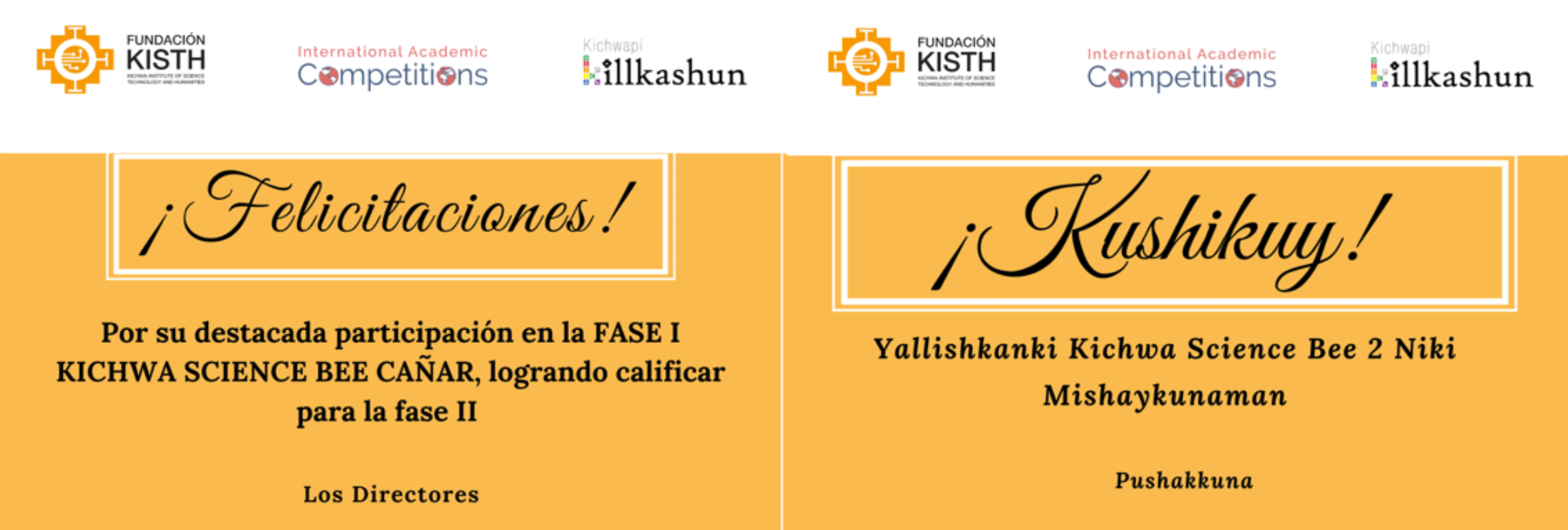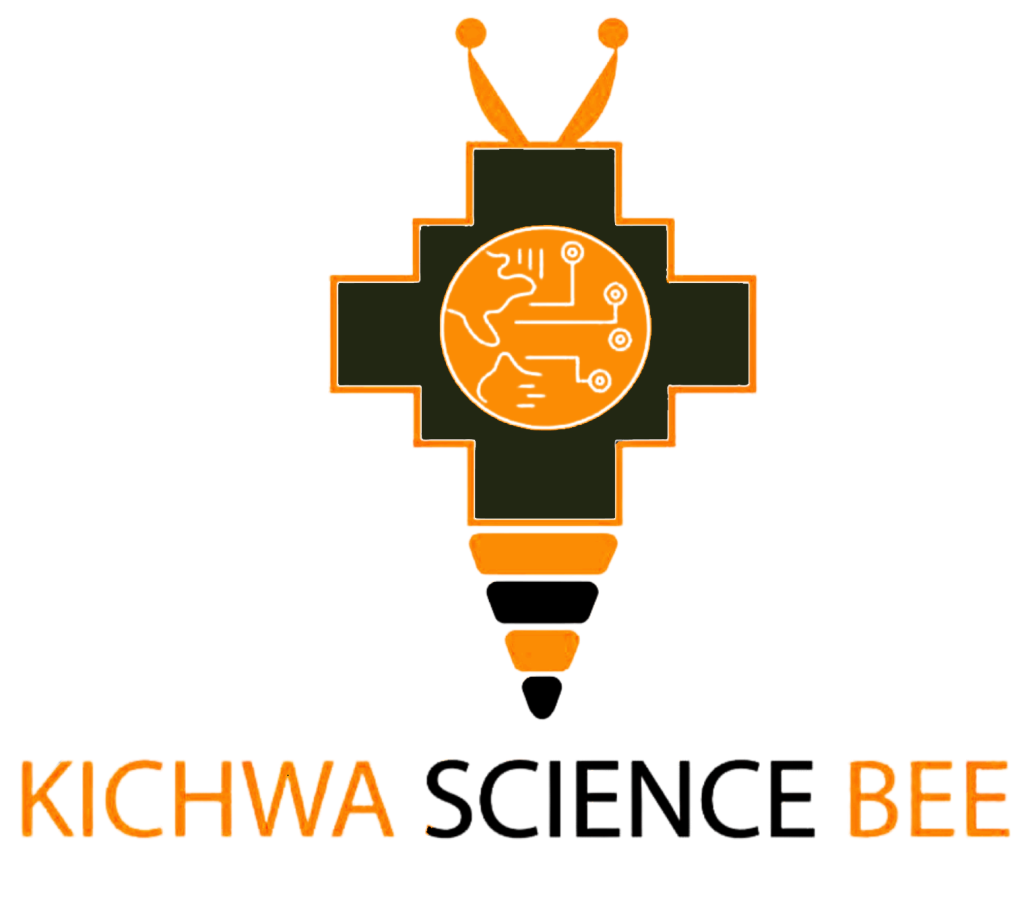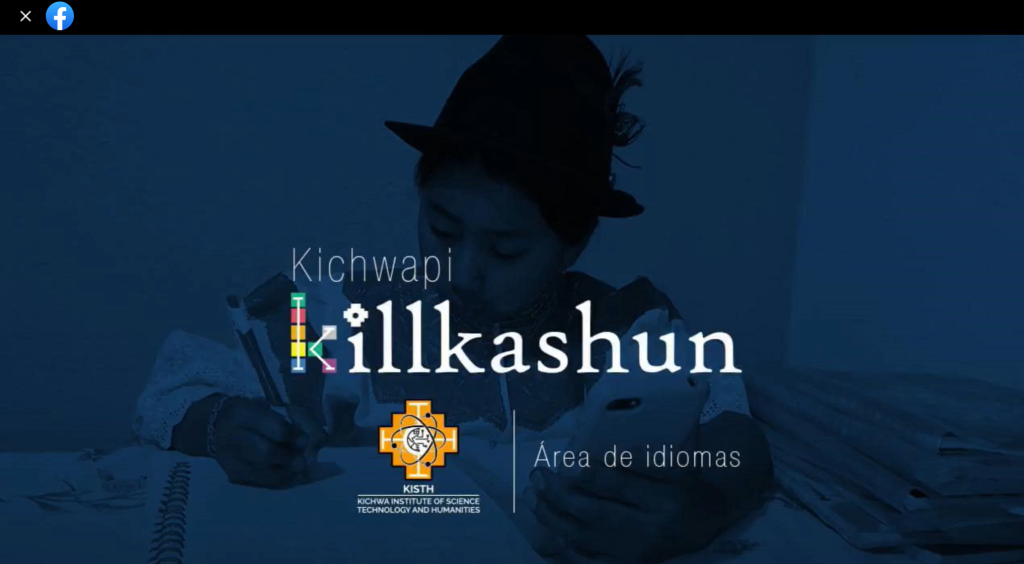IAC presents the First Science Bee in Kichwa
Kichwa is an indigenous language with the largest number of speakers in Ecuador with the country’s indigenous population representing 1.1 million of the country’s total including 14 different indigenous nationalities. Around 50% of the Kichwa population maintains their native language (around 500,000, according to the latest Census) with more than 180,000 young people between the ages of 12 and 17 who use it. However, since Kichwa is primarily a spoken language, histories and aspects of the language have not been recorded fully in writing which nowadays results in a loss of intergenerational transmission of knowledge and culture.
For this reason IAC Ecuador has pursued the development of the Kichwa Science Bee with the main purpose being to reinforce the preservation of the language and the ancestral knowledge of the peoples who use it. IAC- Ecuador and KISTH designed an experience of intercultural revitalization of the language by means of recreational activities and academic competitions encouraging the youth to learn more of their own language and rewarding students for their knowledge.
KISTH (Kichwa Institute of Science Technologies and Humanities) is a non-for-profit organization that promotes the linguistic revitalization of Kichwa, with the mission to generate projects that encourages learning of science, technology, innovation and ancestral knowledge. Through this concept and through a cooperative agreement between International Academic Competitions – Ecuador, and KISTH, the first Kichwa Science Bee was organized, as we will describe below.
Results:
- The Kichwa Science Bee saw 120 participants across Ecuador.
- It employed 4 directors, 13 moderators, 13 support staff of Kichwa descent. In addition, question writers were recruited from “Warmi STEM,” a suborganization within KISTH composed of young women.
- It generated curiosity among student and adult viewers. The competitions had an audience of young individuals aging from 14 to 17 years old, in addition to their older relatives and other intrigued passerbys who were curious about this competition.
- There were winners from 13 different communities throughout Ecuador.
- New projects were conceived in collaboration with the public sector, to coordinate actions to preserve Kichwa language.
- New memorandum of understandings (MoU’s) may take place, to carry out similar or more dynamic activities with the KISTH Foundation.
- Two media partnership agreements have been signed with two recognized community media outlets in the northern region of the country.
- Private and public actors contributed with financial and in-kind donations.
How was the process carried out?
The competition was divided into four phases. The only two requirements for singing up was knowing the language and being between the ages of 14 to 17 years old. After that, local, regional, and finally national competitions were held. The participants had access to a manual with the tournament agendas, the itineraries, and the methodology of the competitions. Each round of the tournament used packets with 30 tossup questions per round with focuses on science in context with Kichwa cultures.
The main challenge was outreach since the majority of the population resides in more rural communities. Therefore, the strategy was to approach them with the help of municipal and provincial government, and complemented with the help of political actors, NGOs and other non-profit organizations. After initial contact was made, KISTH initiated dialogue with community leaders who gave spokespeople airtime at a community board assembly typical of each of their cultures.
KISTH created a promotional video that was distributed through community digital media channels, a very successful strategy since the Kichwa community tends to use this form of media to organize politically.
On October 29, it was evident the great reception that the project had among young people. Besides having the winners of the 13 locations, there were several people who decided to come to witness the competition.
The winners of phase 1 received their recognitions, and a digital guide that allows them to continue on the path of the strengthening Kichwa language use.
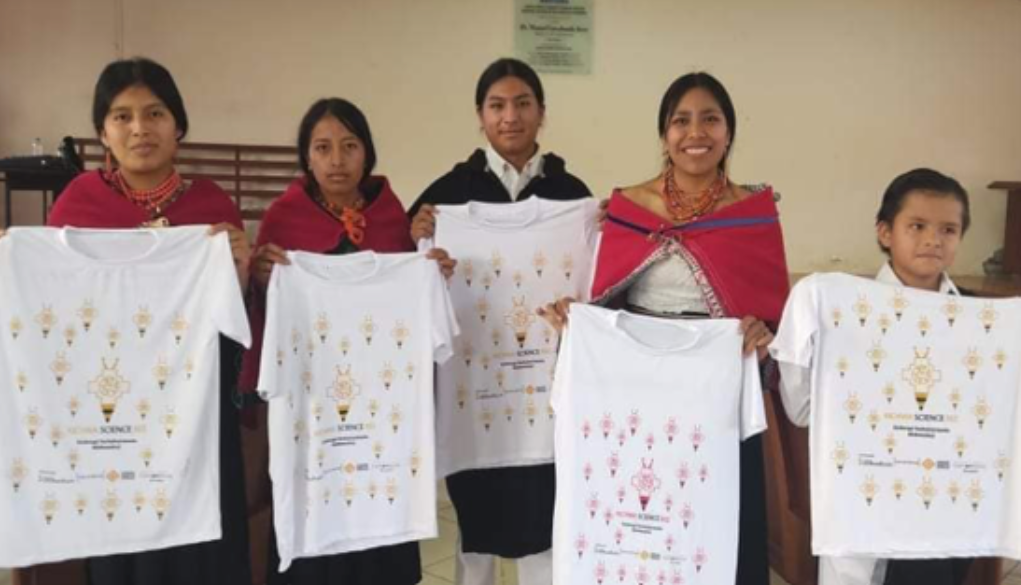
The next phases of the competitions were the regional competitions that took place on November 19 at 2 pm simultaneously in the 3 locations:
Southern regional – City of Cañar
Regional Center – City of Ambato,
Northern region – City of Ibarra
10 finalists earned their spot to the grand finale that took place on Saturday, December 10 in San Rafael a renown place for its waterfalls and lagoon, near the town of Otavalo.
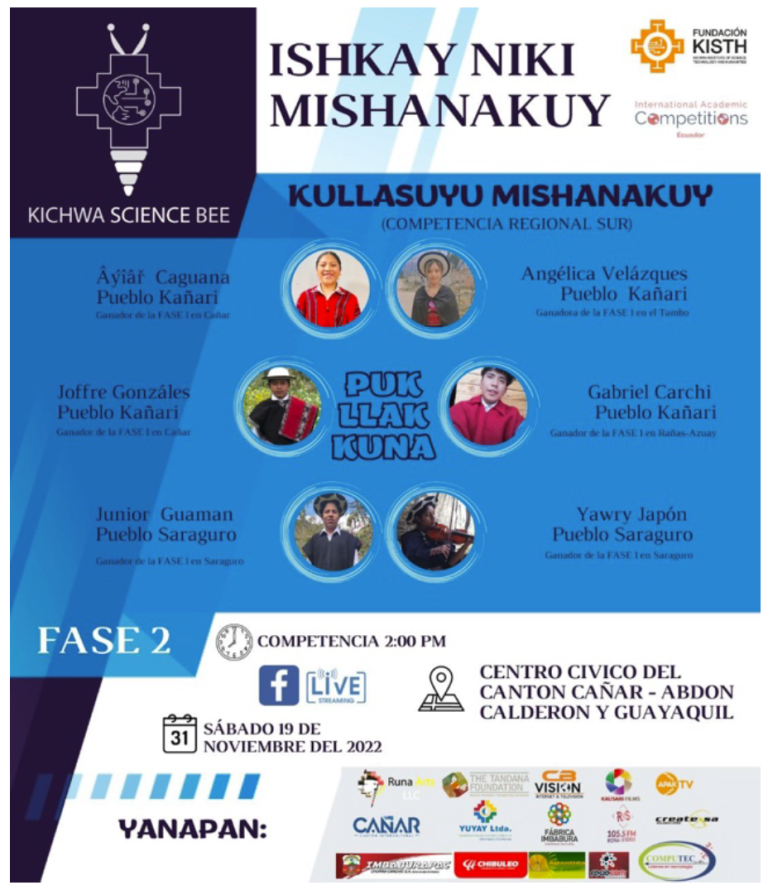
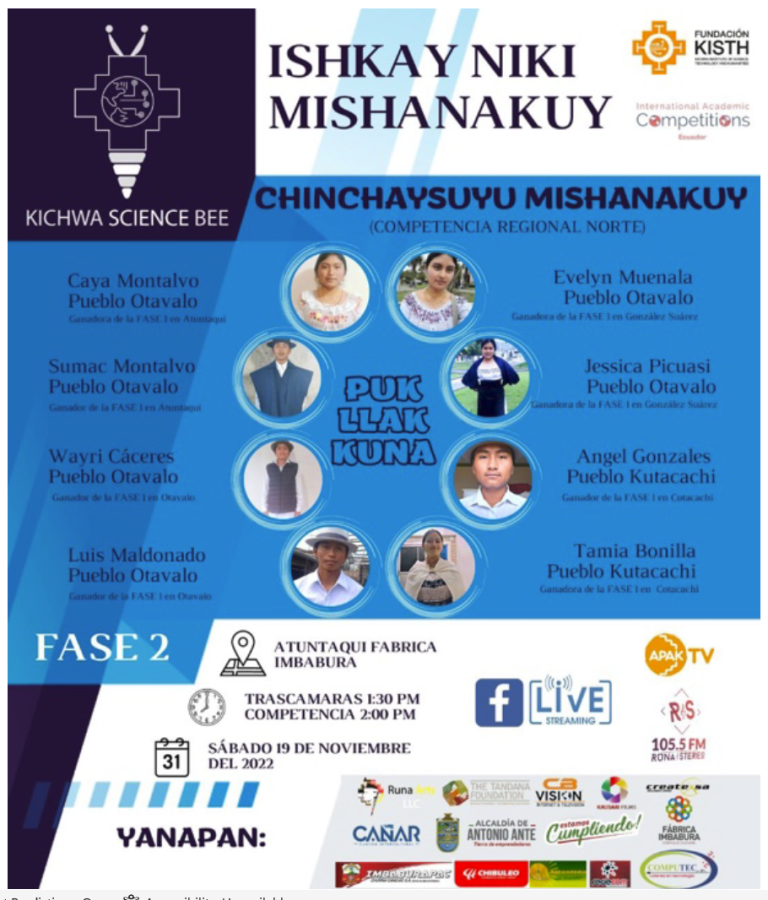
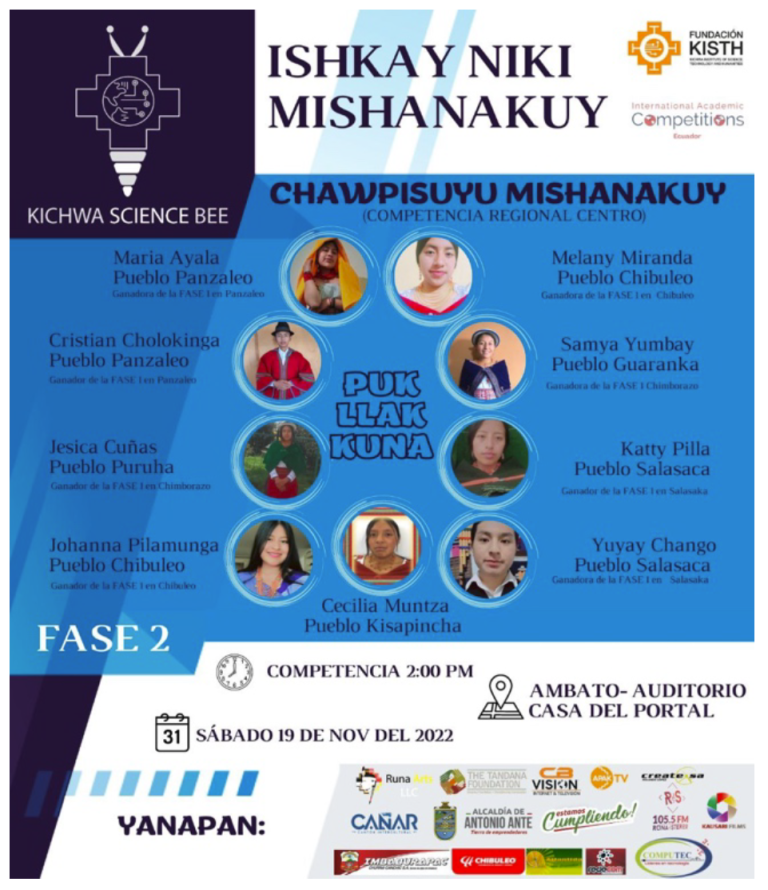
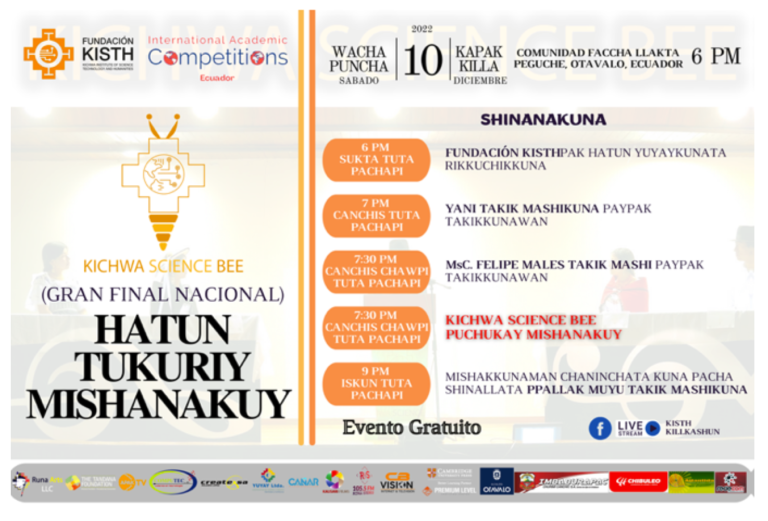
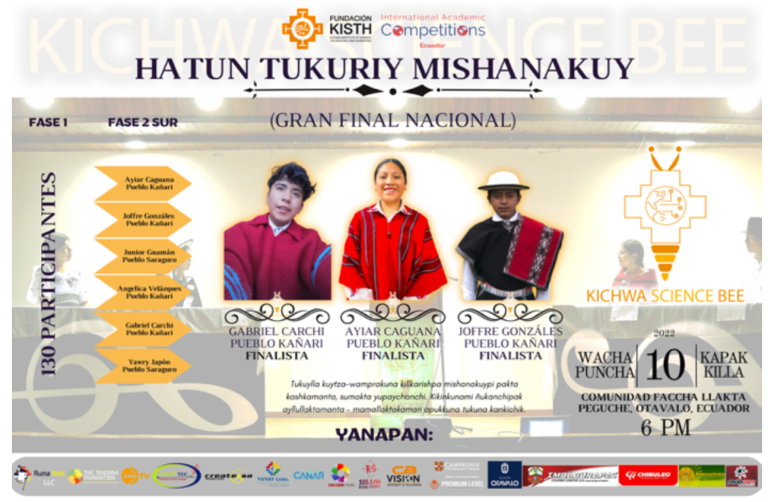
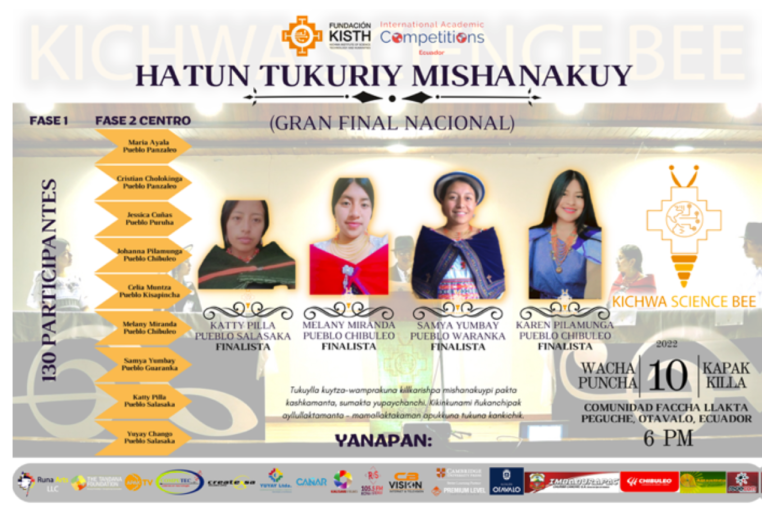
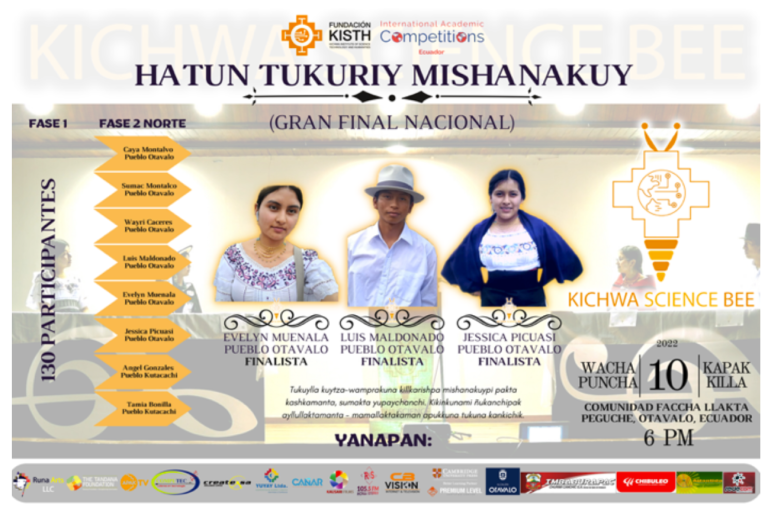
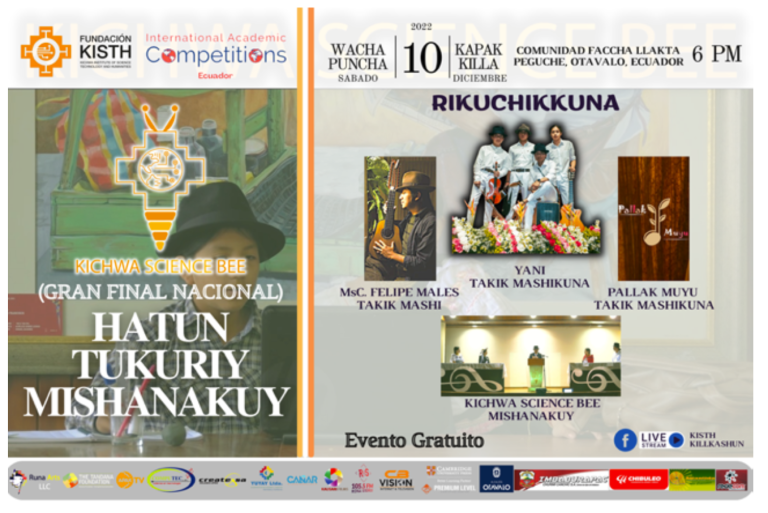
There were the awards
First Place: Prize valued for $1,000 plus + a tour to the Galapagos Islands. Second Place: Prize valued for $600 plus + a tour to Salinas. Third Place: Prize valued for f $400 + a tour to Atacames. In addition to the prizes, participants were awardeda career mentoring service, + a surprise reward.
